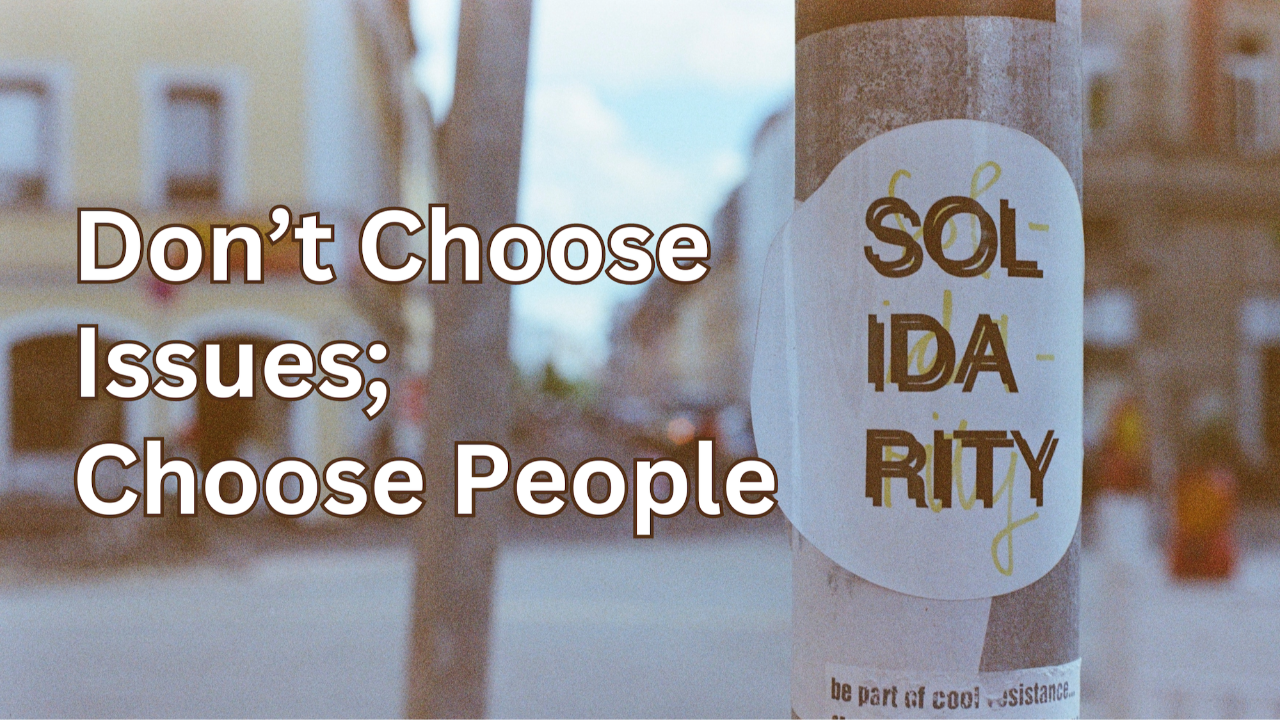Don’t Choose Issues; Choose People

So much of Christianity, at least in America, is about trying to arrive at the 'right beliefs' about God. Once we deem ourselves to be at that place, we hold onto those beliefs with white knuckles and fight off anyone who may threaten them. It's a bit depressing how often a spiritual conversation turns into an interrogation about whether a person aligns with certain ideas or not. (Spoiler alert: I often fail these tests from others).
The Jesuit Priest, Father Gregory Boyle, offers a clarifying way to follow Jesus. "The strategy of Jesus is not centered in taking the right stand on issues, but rather in standing in the right place—with the outcast and those relegated to the margins."
I'm learning how to do this more intentionally than I have in the past. I've shifted from the center to the edge of the inside. It's amazing how differently you can see the same things you've seen for years when you change the location you're seeing them from. Standing in solidarity with a marginalized group will challenge you to reconsider much.
Shane Claiborne says it like this, “Don’t choose issues; choose people."
I've watched this play out in my own life the last few years as it pertains to the way the church responds to the LGBTQ+ community. For years I've tried to make sense of this without feeling much resolution. These days, our family attends an affirming church (one in which the LGBTQ+ community can fully participate) when I'm not preaching elsewhere. It has caused me to see so many things from a different vantage point.
I had lunch this week with a friend visiting from France. I was trying to explain how the churches in America view this issue, and he didn't fully understand the distinction of an affirming church. I told him that most churches wouldn't let a queer person lead a life group or numerous other activities. His stunned reaction would have been funny if it wasn't so different from how most Christians respond.
If we start with an attempt to take the right stand on issues, it will often cause us to marginalize people. But, if we start with an attempt to stand with marginalized people, it will often cause us to rethink our views on the issues themselves.
Shane's advice is to "Fall in love with a group of people who are marginalized and suffering, and then you won’t have to worry about which cause you need to protest. Then the issues will choose you.”
You can apply this criterion for yourself. When you think of a belief you have about an issue, consider whether your view marginalizes a group of people. Then ask yourself how well you currently know that group of people. Find a way to spend time with them and to make friends in that community and then see how this affects the belief you have. Most people won't do this as it will chip away at the certainty of your beliefs and cause you to empathize in ways that might make you uncomfortable.
At this point in my life, I've concluded that if you are convinced "the Bible is clear," I'm convinced you don't entertain much thinking outside your own.
Here's the kicker: it's difficult to arrive at Jesus' stance on issues without standing in solidarity with marginalized people. Ironically, it is these marginalized people who are the key to you and me having a chance to see issues the way Jesus sees them. If we have any hope of arriving at the 'right stand' on issues, it will only be through the influence of marginalized people around us.
Photo by Markus Spiske on Unsplash
Sign up with your email and never miss a post!
We hate SPAM. We will never sell your information, for any reason.





